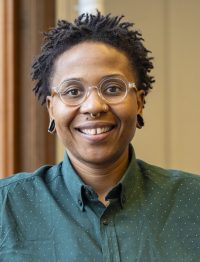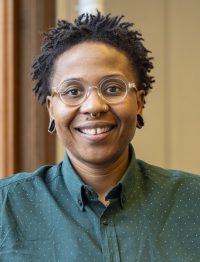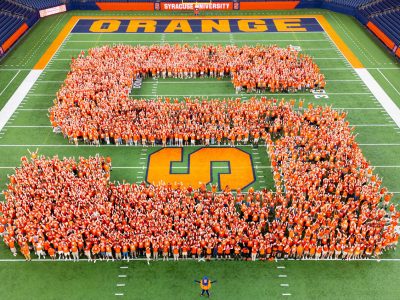Doctoral Students’ Research Leads to New Conclusions About AI and Society
Today’s discussions of artificial intelligence (AI) tend to focus on its most visible presence, such as the chatbot ChatGPT. Yet, as two doctoral students discovered during their past year as Lender Center for Social Justice student fellows, AI exists in society in many forms, both readily apparent and not well recognized.

ParKer Bryant and Aren Burnside found the existence of AI technologies in communities affects people in many ways. They were part of a five-student research team working with Mona Bhan, professor of anthropology in the Maxwell School of Citizenship and Public Affairs, who was chosen as the 2022-24 Lender Center faculty fellow to study how artificial intelligence impacts weapons systems, communities and issues of social justice.
Bryant has worked in education since 2008. She has a bachelor’s degree in psychology and a master’s degree in education leadership and moved to Syracuse from Georgia to pursue her doctorate in literacy education in the School of Education. Now in her third year, she wants to work as a faculty member or education researcher after graduation to stay involved with students but use data to ensure that educational policies are structured to benefit them.

Burnside is a third-year Ph.D. student in anthropology at the Maxwell School. He grew up in the Syracuse area and obtained dual bachelor’s degrees in anthropology and philosophy from Syracuse University in 2020. He wants to become a professor because he especially enjoys teaching.
Here, Bryant and Burnside discuss how their thinking about AI evolved after investigating its social intricacies. Together with Bahn and other student fellows, they will present their findings at the Lender Fellows Symposium on Friday, March 22.


